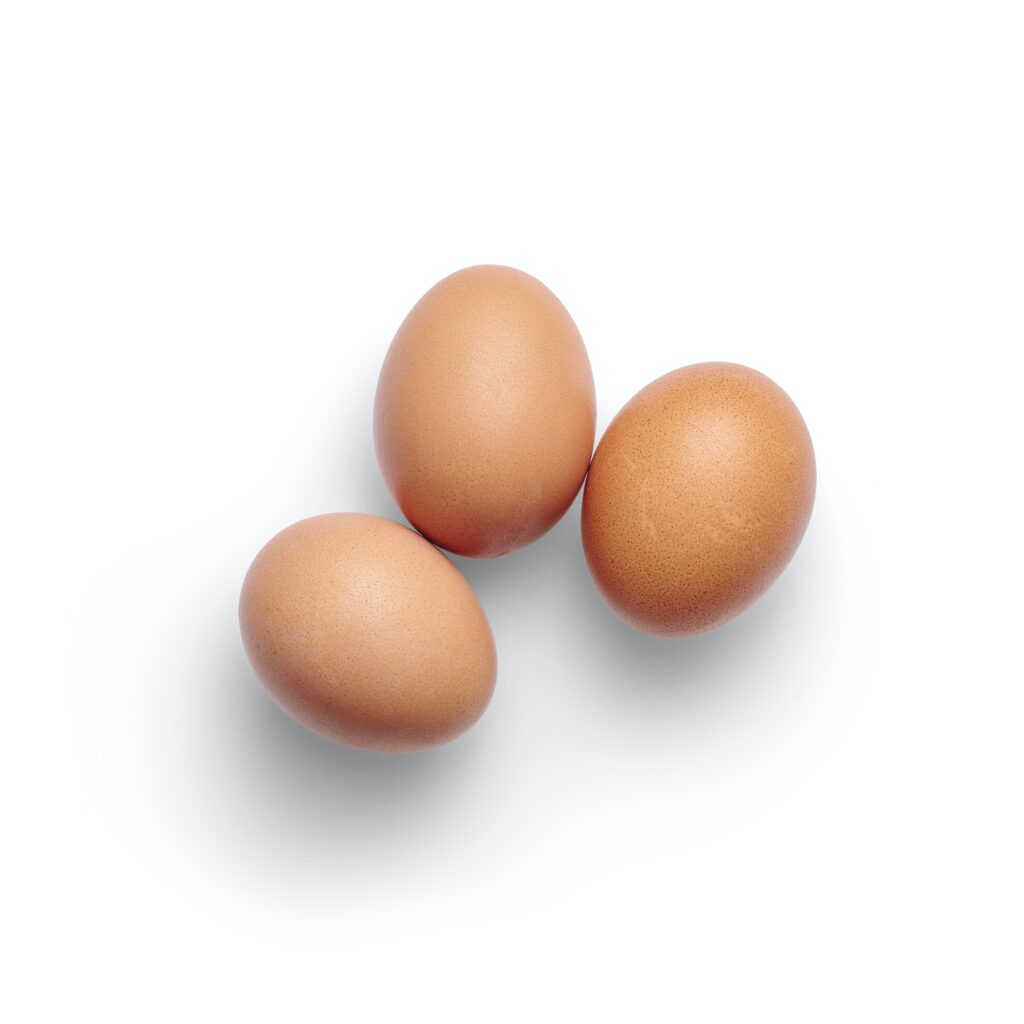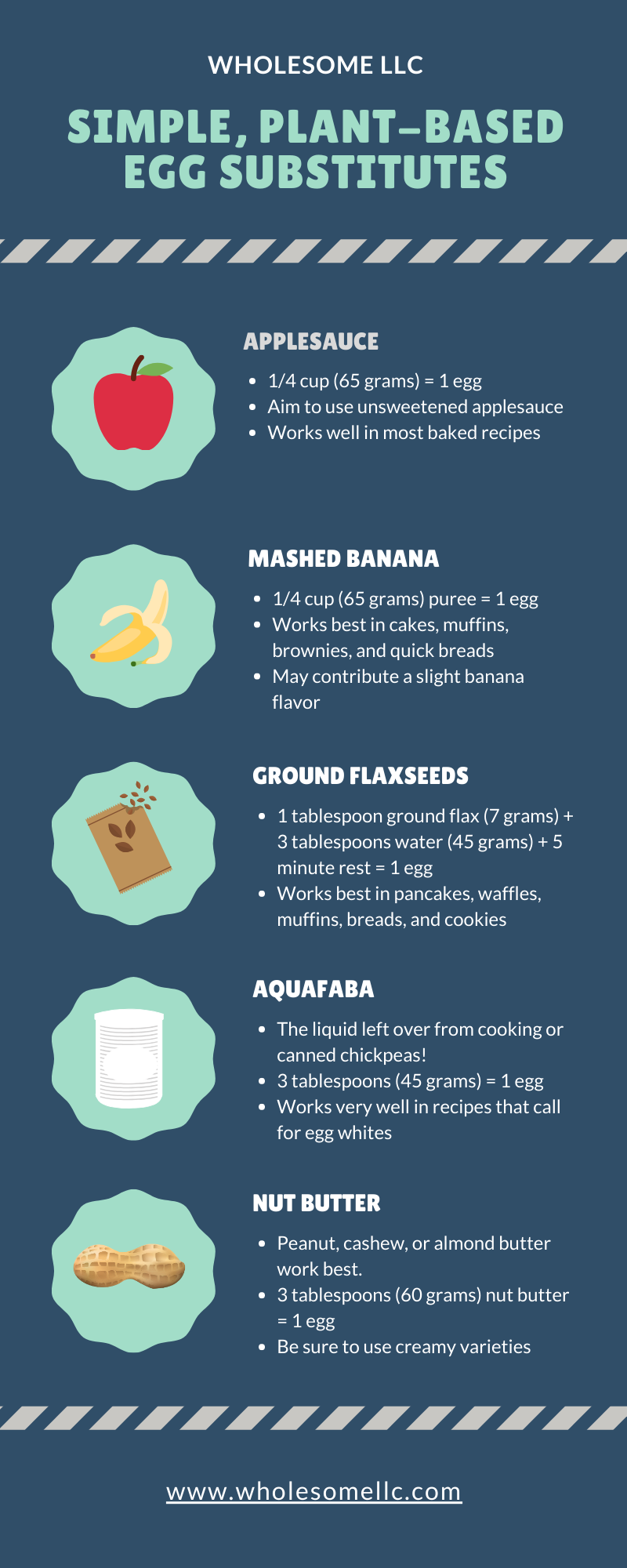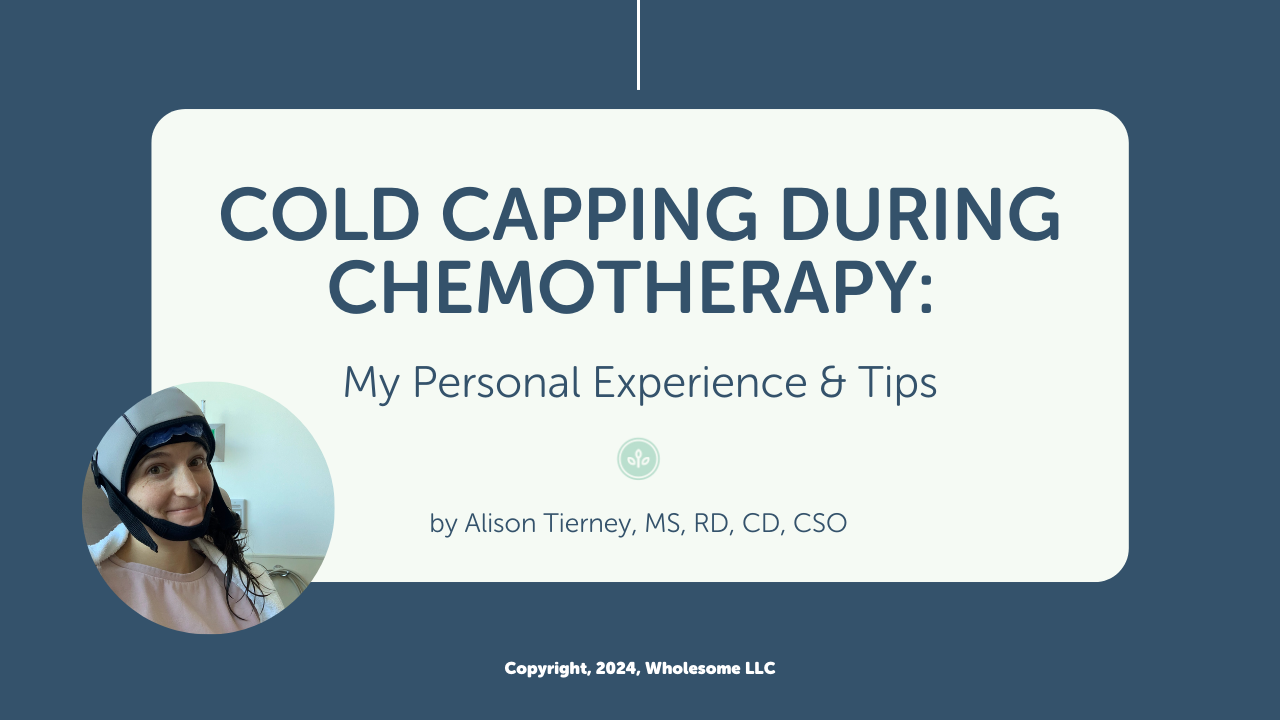The Wholesome Journey - Group Nutrition Coaching Program
Mentorship Program, 1:1 Nutrition Coaching with Alison
What do you want to learn more about?
Program Login
Podcast Features
March 26, 2020
Alison Tierney, MS, RD, CD, CSO
Alison is a registered dietitian, board-certified in oncology nutrition, and a cancer thriver. Her expertise in oncology nutrition and personal experience with her own cancer diagnosis and its treatment provide her with the unique perspective of being able to relate to her clients on an entirely different level. Her content is consistently focused on evidence-based guidelines and seeks to increase the awareness of the power of nutrition to complement traditional cancer therapies.
- Alison Tierney, MS, RD, CD, CSO
- Alison Tierney, MS, RD, CD, CSO
- Alison Tierney, MS, RD, CD, CSO
- Alison Tierney, MS, RD, CD, CSO
- Alison Tierney, MS, RD, CD, CSO
- Alison Tierney, MS, RD, CD, CSO
- Alison Tierney, MS, RD, CD, CSO
- Alison Tierney, MS, RD, CD, CSO
- Alison Tierney, MS, RD, CD, CSO
- Alison Tierney, MS, RD, CD, CSO
- Alison Tierney, MS, RD, CD, CSO
- Alison Tierney, MS, RD, CD, CSO
- Alison Tierney, MS, RD, CD, CSO
- Alison Tierney, MS, RD, CD, CSO
- Alison Tierney, MS, RD, CD, CSO
- Alison Tierney, MS, RD, CD, CSO
- Alison Tierney, MS, RD, CD, CSO
- Alison Tierney, MS, RD, CD, CSO
- Alison Tierney, MS, RD, CD, CSO
- Alison Tierney, MS, RD, CD, CSO
- Alison Tierney, MS, RD, CD, CSO
- Alison Tierney, MS, RD, CD, CSO
- Alison Tierney, MS, RD, CD, CSO
- Alison Tierney, MS, RD, CD, CSO
- Alison Tierney, MS, RD, CD, CSO
- Alison Tierney, MS, RD, CD, CSO
- Alison Tierney, MS, RD, CD, CSO
- Alison Tierney, MS, RD, CD, CSO
- Alison Tierney, MS, RD, CD, CSO
- Alison Tierney, MS, RD, CD, CSO
- Alison Tierney, MS, RD, CD, CSO
- Alison Tierney, MS, RD, CD, CSO
- Alison Tierney, MS, RD, CD, CSO
- Alison Tierney, MS, RD, CD, CSO
- Alison Tierney, MS, RD, CD, CSO
- Alison Tierney, MS, RD, CD, CSO
- Alison Tierney, MS, RD, CD, CSO
- Alison Tierney, MS, RD, CD, CSO
- Alison Tierney, MS, RD, CD, CSO
- Alison Tierney, MS, RD, CD, CSO
- Alison Tierney, MS, RD, CD, CSO
- Alison Tierney, MS, RD, CD, CSO
- Alison Tierney, MS, RD, CD, CSO
- Alison Tierney, MS, RD, CD, CSO
- Alison Tierney, MS, RD, CD, CSO
- Alison Tierney, MS, RD, CD, CSO
- Alison Tierney, MS, RD, CD, CSO
- Alison Tierney, MS, RD, CD, CSO
- Alison Tierney, MS, RD, CD, CSO
- Alison Tierney, MS, RD, CD, CSO
- Alison Tierney, MS, RD, CD, CSO
- Alison Tierney, MS, RD, CD, CSO
- Alison Tierney, MS, RD, CD, CSO
- Alison Tierney, MS, RD, CD, CSO
- Alison Tierney, MS, RD, CD, CSO
- Alison Tierney, MS, RD, CD, CSO
- Alison Tierney, MS, RD, CD, CSO
- Alison Tierney, MS, RD, CD, CSO
- Alison Tierney, MS, RD, CD, CSO
- Alison Tierney, MS, RD, CD, CSO
- Alison Tierney, MS, RD, CD, CSO
- Alison Tierney, MS, RD, CD, CSO
- Alison Tierney, MS, RD, CD, CSO
- Alison Tierney, MS, RD, CD, CSO
- Alison Tierney, MS, RD, CD, CSO
- Alison Tierney, MS, RD, CD, CSO
- Alison Tierney, MS, RD, CD, CSO
- Alison Tierney, MS, RD, CD, CSO
- Alison Tierney, MS, RD, CD, CSO
- Alison Tierney, MS, RD, CD, CSO
- Alison Tierney, MS, RD, CD, CSO
- Alison Tierney, MS, RD, CD, CSO
- Alison Tierney, MS, RD, CD, CSO
- Alison Tierney, MS, RD, CD, CSO
- Alison Tierney, MS, RD, CD, CSO
- Alison Tierney, MS, RD, CD, CSO
- Alison Tierney, MS, RD, CD, CSO
- Alison Tierney, MS, RD, CD, CSO
- Alison Tierney, MS, RD, CD, CSO
- Alison Tierney, MS, RD, CD, CSO
- Alison Tierney, MS, RD, CD, CSO
- Alison Tierney, MS, RD, CD, CSO
- Alison Tierney, MS, RD, CD, CSO
- Alison Tierney, MS, RD, CD, CSO
- Alison Tierney, MS, RD, CD, CSO
- Alison Tierney, MS, RD, CD, CSO
- Alison Tierney, MS, RD, CD, CSO
- Alison Tierney, MS, RD, CD, CSO
- Alison Tierney, MS, RD, CD, CSO
- Alison Tierney, MS, RD, CD, CSO
- Alison Tierney, MS, RD, CD, CSO
- Alison Tierney, MS, RD, CD, CSO
- Alison Tierney, MS, RD, CD, CSO
- Alison Tierney, MS, RD, CD, CSO
- Alison Tierney, MS, RD, CD, CSO
- Alison Tierney, MS, RD, CD, CSO
- Alison Tierney, MS, RD, CD, CSO
- Alison Tierney, MS, RD, CD, CSO
- Alison Tierney, MS, RD, CD, CSO
- Alison Tierney, MS, RD, CD, CSO
- Alison Tierney, MS, RD, CD, CSO
- Alison Tierney, MS, RD, CD, CSO
- Alison Tierney, MS, RD, CD, CSO
- Alison Tierney, MS, RD, CD, CSO
- Alison Tierney, MS, RD, CD, CSO
- Alison Tierney, MS, RD, CD, CSO
- Alison Tierney, MS, RD, CD, CSO
- Alison Tierney, MS, RD, CD, CSO
- Alison Tierney, MS, RD, CD, CSO
- Alison Tierney, MS, RD, CD, CSO
- Alison Tierney, MS, RD, CD, CSO
- Alison Tierney, MS, RD, CD, CSO
- Alison Tierney, MS, RD, CD, CSO
- Alison Tierney, MS, RD, CD, CSO
- Alison Tierney, MS, RD, CD, CSO
- Alison Tierney, MS, RD, CD, CSO
- Alison Tierney, MS, RD, CD, CSO
- Alison Tierney, MS, RD, CD, CSO
- Alison Tierney, MS, RD, CD, CSO
- Alison Tierney, MS, RD, CD, CSO
- Alison Tierney, MS, RD, CD, CSO
- Alison Tierney, MS, RD, CD, CSO
- Alison Tierney, MS, RD, CD, CSO
Eggs are a staple in many people’s diets, but for cancer patients or those looking to reduce their cancer risk, there may be concerns about whether or not they should be consumed. While some studies suggest that eggs may increase the risk of certain types of cancer, others suggest that they may have health benefits. Here, we explore the research on egg consumption and cancer risk to help you make an informed decision.
Does Dietary Cholesterol Increase Cancer Risk?
For years, we have known about the connection between increased cholesterol levels as it relates to heart disease. The higher the cholesterol level, the higher the risk for heart disease.
However, there is a public debate regarding dietary cholesterol consumption. Overall, the medical community agrees the consumption of dietary cholesterol should be as little as possible.
The Institute of Medicine (IOM) states “individuals should consume as little dietary cholesterol as possible while consuming a healthy eating pattern.” (1)
What is the reason behind this recommendation? Most foods that contain dietary cholesterol are also high in saturated fats, such as fatty meats and high-fat dairy products. Furthermore, strong evidence from prospective cohort studies (following individuals for a long period of time and monitoring disease development) and randomized controlled trials show eating patterns lower in dietary cholesterol are associated with a reduction in heart disease risk (1).

What about Cholesterol and Eggs as it Relates to Cancer Risk?
Studies are not as widely available and don’t have as strong of evidence in cancer versus heart disease. However, the evidence continues to mount.
This study, which looked at 19,732 people, found dietary cholesterol increased the risk of cancers of the stomach, colon, rectum, pancreatic, lung, breast, kidney, bladder, and Non-Hodgkin’s lymphoma. (2)
Further research focused on prostate cancer has found that men who consumed the equivalent of just ½ egg per day (the equivalent of 3.5 eggs a week) had a 14% increased risk of advanced prostate cancer (3). Whereas, men who consumed 5 eggs per week were found to have a 47% increased risk of fatal prostate cancer (4). Limitations to both of these studies include they were prospective cohort studies, rather than a randomized control trial.
What do researchers believe is the reason for increased cancer risk?
It has been found that “a large amount of cholesterol is required for malignant (cancerous) cells to support their rapid growth” (4). Meaning, cancer cells can use cholesterol to fuel its growth.
As mentioned previously, foods that contain high amounts of cholesterol likely contain high amounts of saturated fat, but also choline and protein — all of which are believed to play a role in the development and/or growth of cancer cells.

So, Are Eggs Bad for Cancer Patients?
As always, the goal of Wholesome is to present research in an easy-to-understand manner allowing YOU to make the best decisions for you and your family.
Based on the current research, we suggest to consider focusing on limiting eggs within your diet. This follows the IOM recommendation to limit the consumption of dietary cholesterol as little as possible.
Furthermore, research demonstrates the relationship between egg consumption and cancer risk is a dose response relationship, especially among GI cancers (5). Meaning, the more eggs consumed, the higher the cancer risk.
Although a nutrition pattern focused on whole, unprocessed plant foods and therefore elimination of eggs can be a healthy approach – it doesn’t mean one needs to cut out eggs from the diet completely. Simply focus on limiting consumption to reduce your overall risk of cancer development or recurrence if complete elimination is daunting to you.
Egg Replacement Recommendations
Those who are interested in completely eliminating eggs from their diet, or aiming to drastically reduce – we have some ideas for you!
For many, cooking or baking without eggs is very different.
It was a gradual process for us to eliminate eggs from our home. Thankfully, here are a few simple replacements that help reduce your egg consumption!

References:
- Chapter 1: Key Elements of Healthy Eating Patterns. (n.d.). Retrieved March 24, 2020, from https://health.gov/our-work/food-nutrition/2015-2020-dietary-guidelines/guidelines/chapter-1/a-closer-look-inside-healthy-eating-patterns
- Hu J, La vecchia C, De groh M, et al. Dietary cholesterol intake and cancer. Ann Oncol. 2012;23(2):491-500.
- Wu K, Spiegelman D, Hou T, et al. Associations between unprocessed red and processed meat, poultry, seafood and egg intake and the risk of prostate cancer: A pooled analysis of 15 prospective cohort studies. Int J Cancer. 2016;138(10):2368-82.
- Keum N, Lee DH, Marchand N, et al. Egg intake and cancers of the breast, ovary and prostate: a dose-response meta-analysis of prospective observational studies. Br J Nutr. 2015;114(7):1099-107.
- Tse G, Eslick GD. Egg consumption and risk of GI neoplasms: dose-response meta-analysis and systematic review. Eur J Nutr. 2014;53(7):1581-90.
Post Updated May 2023
Are Eggs Bad for Cancer Patients? Do Eggs Increase Cancer Risk?
Leave a Reply Cancel reply
Featured Articles
Wholesome LLC is not a medical practice, and its employees cannot offer medical advice. This website provides educational information but it is not a substitute for medical advice from a licensed medical professional who is familiar with your particular facts and circumstances. The information contained on this website is not intended to diagnose, treat, or cure any disease and shall not be construed as medical advice. The information and education on this website is provided for you to use at your own discretion.
You can further review our disclaimer here.
Wholesome
About Alison
Courses & Programs
The Wholesome Journey
Free Resources
FAQs
Press & Media
Recipes
Blog
Contact Us
Shop
© 2026 Wholesome, LLC All rights reserved.
Privacy Policy
Terms of Use
Disclaimer
Mobile Terms of Service



What about dietary methionine and cancer risk?
https://nutritionfacts.org/2014/07/08/a-low-methionine-diet-may-help-starve-cancer-cells/
This is super interesting! Thank you for sharing, David!
But I love my eggs. 🙁
HI Brook! That’s okay!!
We don’t believe in giving up your favorite foods. However, reducing your consumption can be helpful to reduce your risk. If you love scrambled eggs in the morning for example, use 1 egg less than you normally would and then add a bunch of veggies to make a scramble!
I hope that helps!
I, too, love eggs, but I don’t understand replacing them with foods that are high in sugars which a dozen or more studies have shown just as dangerous, in my opinion. A lot of the studies, I don’t trust. Nearly all studies are based on being observational, no controls (the one you mention was a mail-in study), and don’t follow any methodology. The people were asked once at the beginning of the study and then results taken years later. It’s impossible people eat exactly the same for years. So scientists are guessing at eating habits, making dubious conclusions.
Thank you for sharing your opinion, David!
This blog article never suggested replacing eggs with high sugar options instead. I do agree with you that high amounts of added sugar aren’t any better!
When it comes to the research studies, just as my article mentioned – as did you – there are limitations to the studies and more research is needed. Nutrition research is incredibly difficult to do for several different reasons, which do include self-reporting, difficulty in creating randomized controlled trials, many confounding variables, etc. The studies that are considered "gold standard" also have limitations.
This blog article is meant to share information to inform the public to help them make their own choices in eating habits, as mentioned.
And I don’t believe that scientists are making dubious conclusions. They are simply reporting their findings and also stating that further research is needed.
Although research isn’t 100% conclusive, I personally operate from a precautionary principle. Others may choose to do so as well, and others may not. In the end, if one is presented the knowledge, it can further empower them to make their own individual choices on their nutrition and lifestyle.
Wishing you good health!